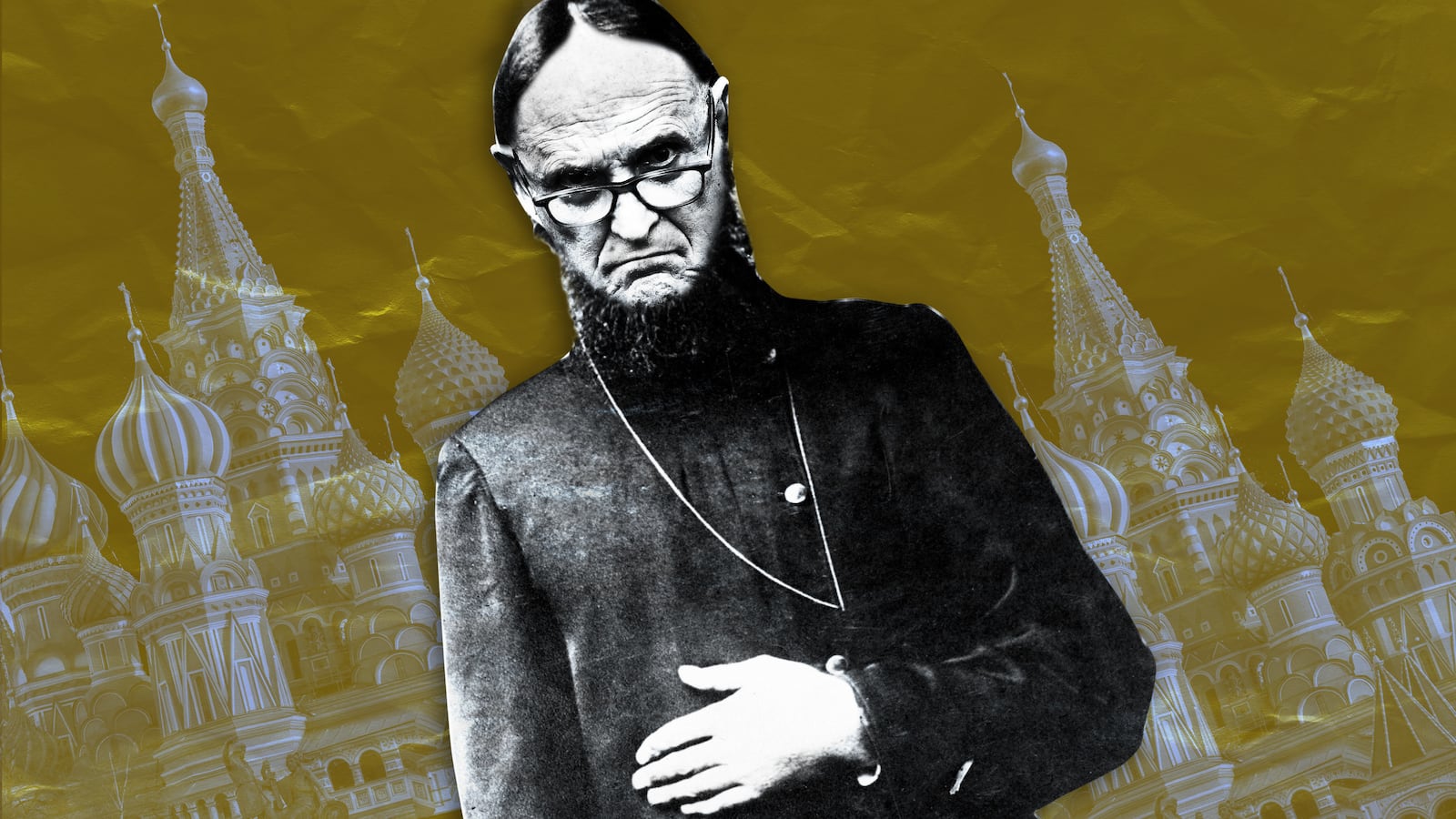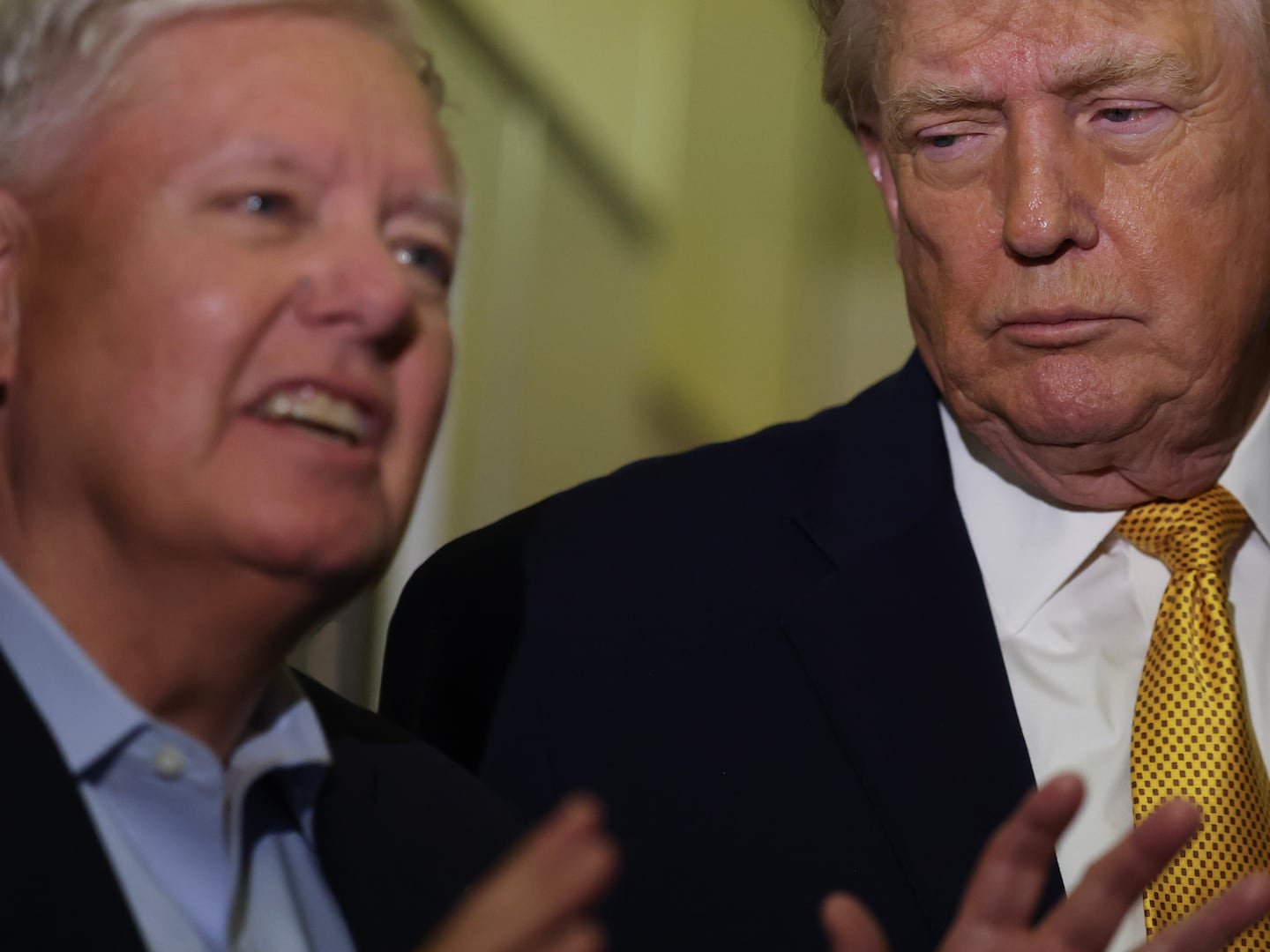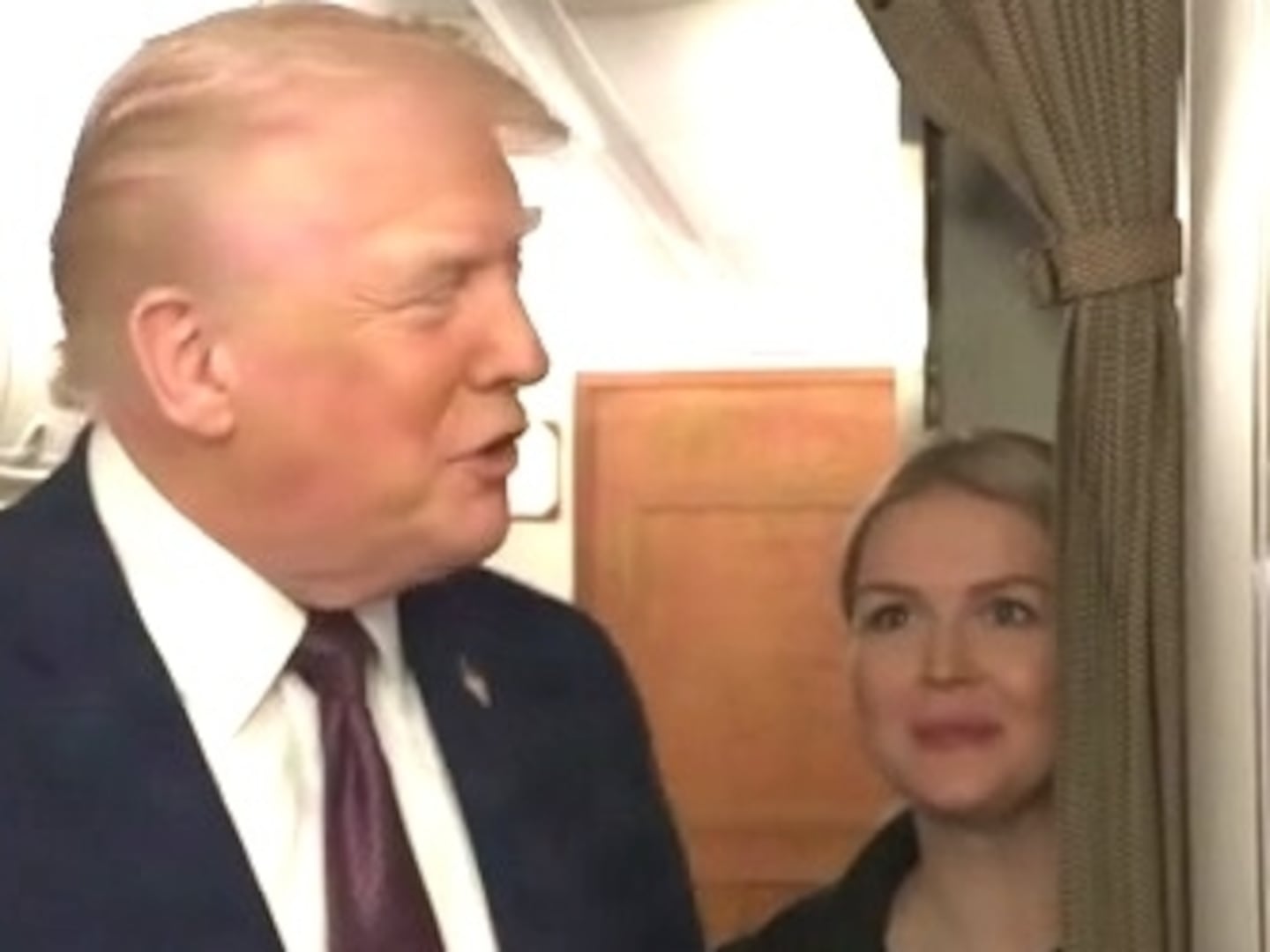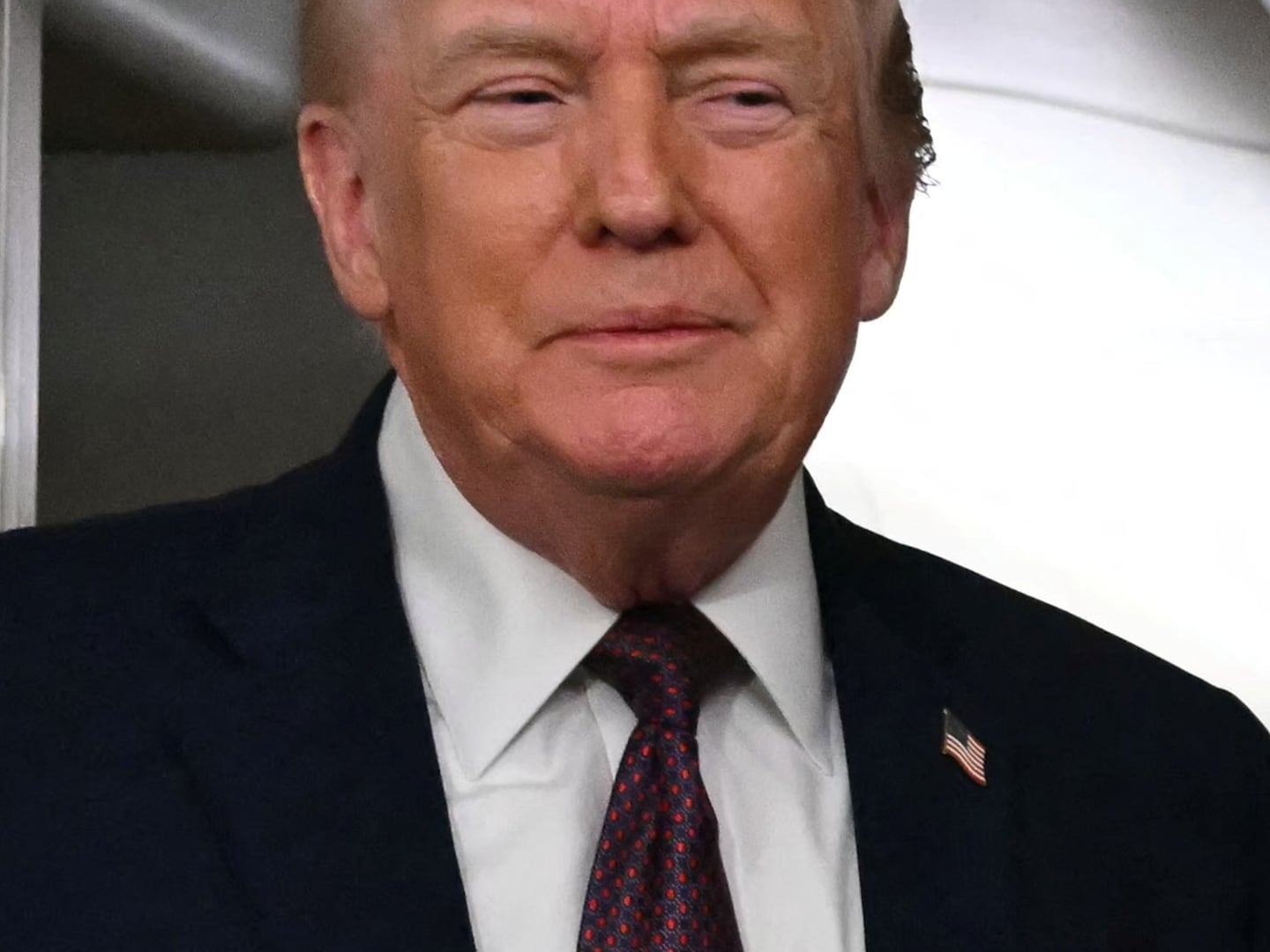To hear Ukraine envoy Kurt Volker tell it, Rudy Giuliani was wrecking the Washington-Kyiv relationship with his conspiracies and calls for investigation while seasoned diplomats just tried to rein him in. And it’s that unchecked blundering that got the Trump administration into the Ukraine impeachment mess in the first place, according to a transcript of his deposition released Tuesday. In it, Volker portrays Giuliani as a Rasputin-like figure—a mad zealot who poisons the mind of the king, dodges every attempt by the palace to keep him from the ruler, and threatens to bring down the whole empire in the process. So what was Rudy telling Trump about Ukraine? How much did the Trump administration officials hate him? And was there any daylight between Giuliani’s diplomacy and theirs?
Welcome to Rabbit Hole
Whisper campaign: Volker testified that Giuliani had engaged in a campaign of conspiracy-mongering about Ukraine in discussions with Donald Trump, which made it hard for the president to engage on the U.S.-Ukraine relationship.
In May, Giuliani had appeared on Fox News to proclaim that he would not visit Ukraine in his quest to dig up dirt on the Bidens because its newly elected president, Volodomyr Zelensky, was “surrounded by people who are enemies of the president [Trump].” That same message, according to Volker, had reached the president. Volker told lawmakers that when he tried to talk up Zelensky’s reformist credentials to Trump, “He just didn’t believe it. He was skeptical. And he also said, that’s not what I hear. I hear, you know, he’s got some terrible people around him. And he referenced that he hears from Mr. Giuliani as part of that.”
Trump hates Ukraine: Whoever was responsible for it, one thing that’s clear from Volker’s testimony and others is that President Trump had no love for Kyiv. Volker testified that Trump had said of Ukrainians that “they are all corrupt, they are all terrible people”—a point echoed by Volker’s assistant, Catherine Croft. Croft testified last month that she had “heard directly and indirectly—President Trump describe Ukraine as a corrupt country.”
Why the grievance? Volker testified that Trump said that Ukraine had “tried to take me down,” an apparent reference to his enduring belief in the debunked conspiracy theory that Ukraine, and not Russia, had hacked the DNC and Clinton campaigns in 2016 and that officials had released the former Ukrainian president’s “black ledger” of corrupt payments to Trump campaign manager Paul Manafort in order to interfere in the U.S. presidential election.
The Giuliani factor: Volker cast himself as trying to contain the damage Giuliani was doing not just on the American side of the U.S.-Ukraine relationship but on the Ukraine side as well. The State Department envoy met with President Zelensky during his visit to Toronto on July 2 and warned him of what he called the “Giuliani factor.” That factor, according to Volker, was a “negative narrative about Ukraine” that Rudy had “amplified” in the U.S. and that would hurt “our ability to advance the bilateral relationship.”
Even Pompeo can’t control Rudy: Volker wasn’t the only one in the Trump administration who apparently had trouble managing Giuliani’s whisper campaign. He told lawmakers that he didn’t raise the issue of Rudy’s Ukraine meddling with Secretary of State Mike Pompeo because, in his belief, no one could stop him. “Would Rudy Giuliani stop doing what he's doing because the Secretary of State calls him?” Volker said. “I'd be surprised.”
Sondland echoed the sentiment. Pompeo, he told lawmakers, would roll his eyes at the mention of Giuliani and refer to him as “something we have to deal with.” The president’s lawyer was causing “serious issues” with the U.S.-Ukraine relationship, according to Sondland, but “there was very little [senior State Department officials] could do about it if the President decided he wanted his lawyer involved.” He speculated that State Department leaders like Pompeo and Brechbuhl “hit a brick wall when it came to getting rid of Mr. Giuliani.”
Who does Rudy work for? So was Rudy acting at the behest of the State Department and U.S. foreign policy, his client President Trump, or just himself? The distinction wasn’t necessarily clear even to Volker. “I don't know whether he was representing the President or whether he was doing his own things to try to be helpful to the President,” he said.
The way Giuliani talks about it, he was working arm-in-arm with the State Department. When the Ukraine story first broke, he readily told The Daily Beast that he had been talking with Volker and Sondland about his Ukraine work. The point of these interviews, in Volker’s reckoning, was to make the case that “he was doing these conversations and having these meetings at the request of the State Department and reporting back, and he was being directed by the State Department, so he's not just off out there on his own.”
And as Volker’s opening statement indicated last month, Giuliani went so far as to call Secretary of State Pompeo and ask that the department issue a statement confirming it was Volker who had arranged a meeting between Giuliani and one of President Zelensky’s advisers.
But does that mean Giuliani was working for the department? Not according to Volker. He draws a distinction between what he claims was his facilitation and direction of the former mayor. In Volker’s telling, his arrangement of a meeting between Giuliani and a Zelensky aide was a clever ploy to steer him towards “much better information than [Giuliani’]s getting from [Ukrainian prosecutor Yuriy] Lutsenko” and not an effort to further a quid pro quo.
Good cop, bad mayor: It’s not hard to believe Volker’s narrative that Giuliani was a loose cannon or that he routinely gave the Ukraine envoy and Sondland headaches with his antics. After all, former National Security Adviser John Bolton famously called him a “hand grenade who's going to blow everybody up,”
Throughout their testimony, the two diplomats tried to draw distinctions between pushing for a good-government investigation of Burisma and a partisan political investigation of Hunter and Joe Biden.
"I believe that Giuliani was interested in Biden, Vice President Biden's son Biden [sic], and I had pushed back on that, and I was maintaining that distinction," Volker told lawmakers.
While Volker has used this to claim that he and Giuliani were pursuing different goals in their Ukraine efforts, the distinction is pointless, as it leads them both to the same place: an investigation of the Bidens. It also makes it seem as though the most frustrating thing about Giuliani for the Trump administration wasn’t his goals, but the fact that he said the quiet parts out loud.





